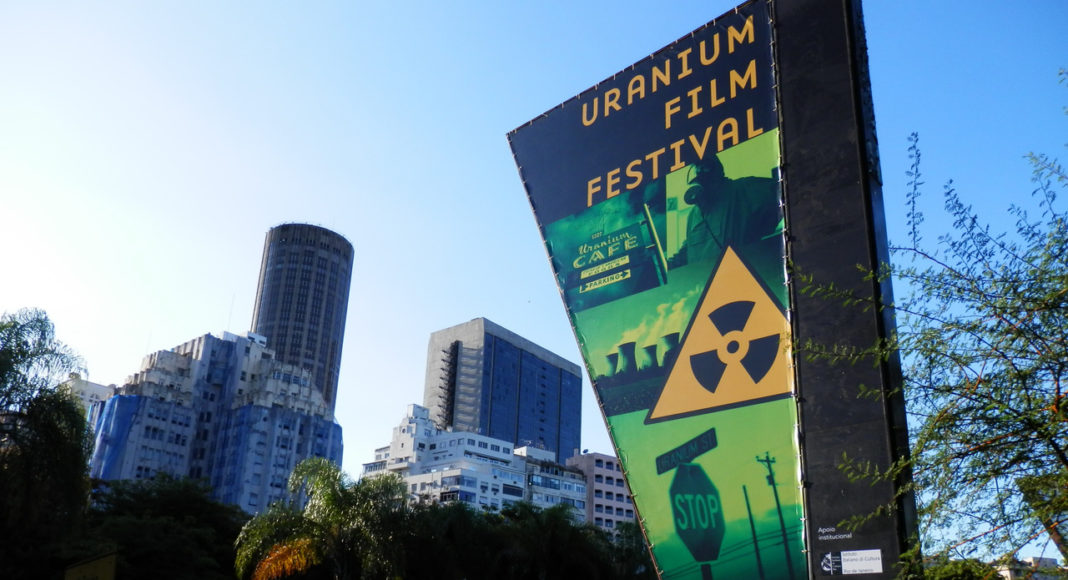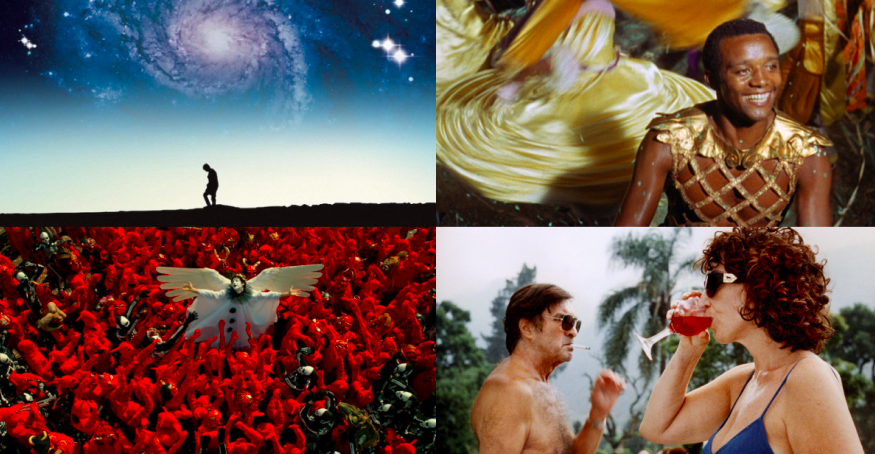- In March 2011, when Chernobyl seemed long forgotten, the Fukushima reactor accident happened and shocked the world – coincidentally just two months before the first International Uranium Film Festival (IUFF) took place in Rio de Janeiro.
- In Goiânia, Brazil in 1987 the theft of a forgotten radiotherapy source contaminated 249 people, killing four of them.
- These disasters showed the importance of the festival to provide a deeper insight into a topic of global importance. No other film festival shows the entire range of nuclear threats from uranium mining to nuclear waste and brings so many films about nuclear and radioactive dangers to the cinema.
- This year’s festival brings together for the first time, Navajo people who suffered for more than 40 years the effects of uranium and indigenous peoples in Brazil who are threatened with a planned uranium-phosphate mine in Ceará.
- UK audiences can watch the online programme from May 19th – 29th, here.
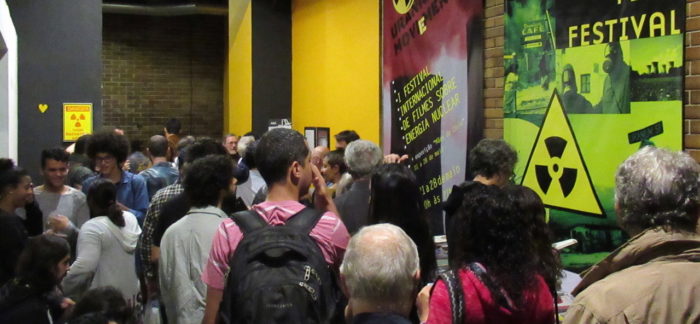
To learn more about this important festival, LAB talked to co-founders Márcia Gomes de Oliveira and Norbert G. Suchanek
Can you give our readers a little background about your festival: What was your motivation when founding it?
The International Uranium Film Festival sheds light on all nuclear issues. It is the largest film festival in the world dedicated to the whole nuclear fuel chain: from uranium mining to nuclear waste, from Hiroshima to Fukushima. It provides the ‘atomic’ films to a global audience. In addition the event is also a great gathering of filmmakers where they can meet each other and exchange their thoughts and experiences. It is an open space for nuclear debates and everybody is welcoming. Regardless of whether you are in favor or against the use of nuclear energy, everyone should be informed about its risks.
What are the films that you look forward to in this year’s edition?
This year, of course, everything is overshadowed by the war in Ukraine and the real threat of nuclear escalation. For that we show several Films about the nuclear threat and nuclear war. What’s more, we also invited an excellent nuclear weapons expert to the film festival in Rio: Sergio de Queiroz Duarte. He was Ambassador of Brazil to Nicaragua, Canada, China and Austria. He chaired the Nuclear Non-Proliferation Treaty Review Conference (2005) and was the United Nations High Representative for Disarmament Affairs in New York (2007 to 2012). And today Duarte is President of the nuclear threat thinktank Pugwash Conferences on Science and World Affairs, founded in 1957 by philosopher Bertrand Russell and physicist Joseph Rotblat, winner of the 1995 Nobel Peace Prize.
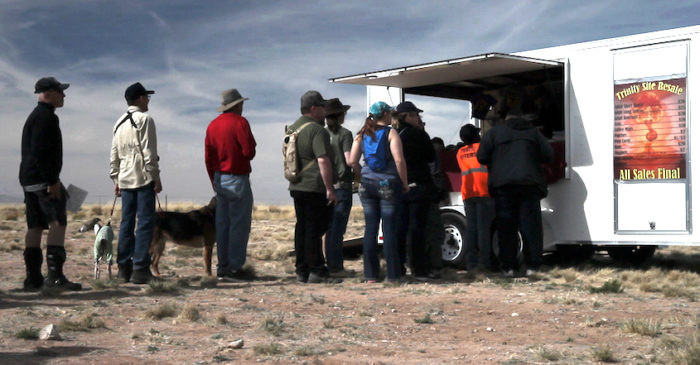
Can you tell us a little bit more about the submission/selection process? What types of films can be submitted, how are they selected?
The festival is open for all films that deal with the question of nuclear power and the risks of radioactivity: Movies, documentaries, animations, short and feature films. Filmmakers and producers send their films to us, and we, Marcia and I, simply watch the films and select the best for the screenings. In addition, we have a team of judges – this year for example with Libbe HaLevy, the producer and host of Nuclear Hotseat – who decides the award winners of the festival.
After many years of hosting this festival, is there something that still impresses and surprises you?
You never know who will show up at the film screenings. Of course we have some festival spectators who come every year. However, It is always a surprise. The published reports about the festival are also a surprise. Sometimes the festival makes big headlines in big media. Sometimes not. This year the main Basque magazine from Bilbao, Argia, published a fantastic, long article about us in Basque language!
How can film festivals like yours raise global awareness and contribute to dialogue, especially on such a polarizing topic?
Films can change the world. People say a picture is worth a thousand words. Movies are 24 pictures per second.
Films can change the world. People say a picture is worth a thousand words. Movies are 24 pictures per second. The legendary 1979 feature film The China Syndrome, starring Jane Fonda, is one such example. The film was released on 16 March 1979, twelve days before the Three Mile Island nuclear accident happened.
The real accident plus The China Syndrome had a huge impact on American society. After this film not a single new nuclear power plant was built in the USA. Not until 2010, did President Barack Obama gave the green light for new nuclear power plants.
The important point is: You have to bring the films to the viewers, give them an audience. That’s what the Uranium Film Festival does in Rio and around the world.
It’s such an important topic that your festival is focused on, however, it isn’t everyday news. Why should people care about this topic?
Quite simply because it affects us all, in the UK as well as in Brazil, Mexico, Thailand or anywhere else. Nuclear war affects everyone, including nuclear accidents and nuclear waste, which will pose a threat for hundreds of thousands of years. And even without nuclear weapons and nuclear power plants, radioactive hazards are pretty much everywhere.
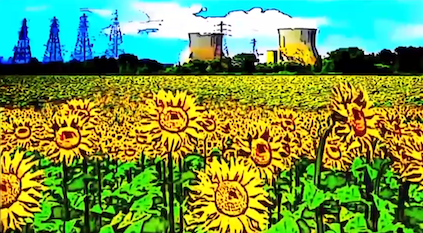
Since the terrible Cesium-137 accident in Goiânia, Brazil in 1987, we know that radioactive accidents can happen not only in nuclear power plants. The Goiânia disaster was caused by just one abandoned radiation treatment device.
However, the use of radioactive materials in our society is widespread and mostly unknown to the public. Radiation devices and radioactive elements are used not only in medicine, but also in the steel industry, in mining and even in the industrial food production, for example.
There have been dozens of cases across the world of radioactive devices and materials abandoned, stolen or involved in road accidents. 35 years after Goiânia, radiation accidents are still possible at any time and anywhere – or may have already happened but remained undiscovered. Radioactivity is invisible.
Where and when can people in the UK watch and participate in your festival?
Brits living in Rio should come to the MAM Rio cinema, see the films and meet the filmmakers. People outside of Brazil can stay in their armchair at home and watch most of the festival films online – for free. The online program runs 24/7 and starts on May 19th and ends on May 29th. We do all of this for free, but we ask for a donation from those who can afford it. We cannot do the festival without the support of others. You can watch the films at: https://uraniumfilmfestival.org/en/rio-2022-online
Márcia Gomes de Oliveira was born in Rio de Janeiro and studied social science. Her first scientific work was with indigenous peoples from the Amazon and the state of Rio de Janeiro. Today she teaches sociology at the FAETEC public technical school for film, TV and communication.
Norbert G. Suchanek is an environmental and human rights journalist and documentary filmmaker. He was born about 50 years ago in Bavaria. In the 1980s and 1990s, at the beginning of his career he researched in the conflict regions like Northern Ireland and Palestine. Later he moved his focus on Brazil and its indigenous peoples. Since 2006 he has been based as a correspondent in Rio de Janeiro.

